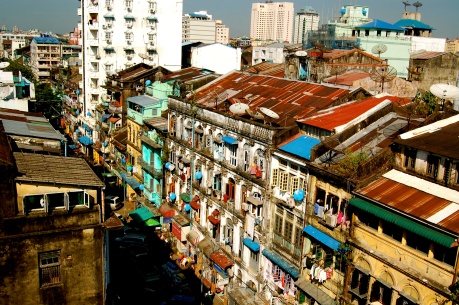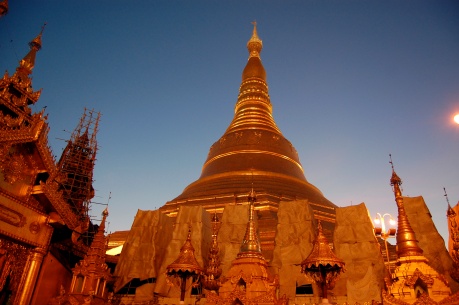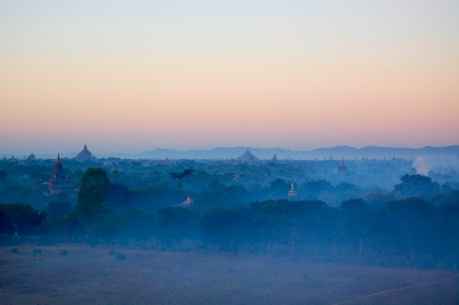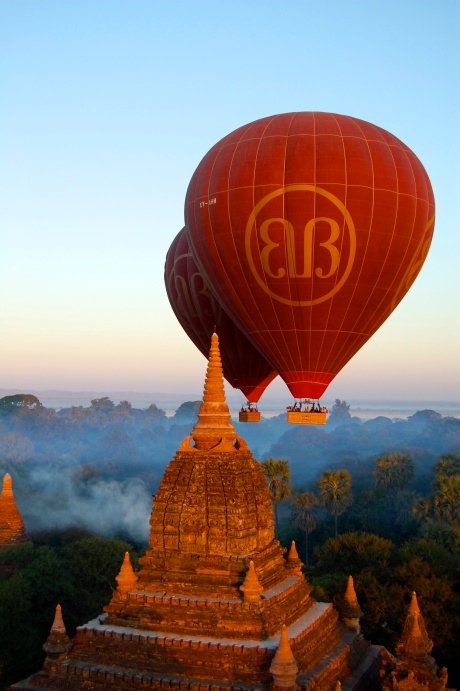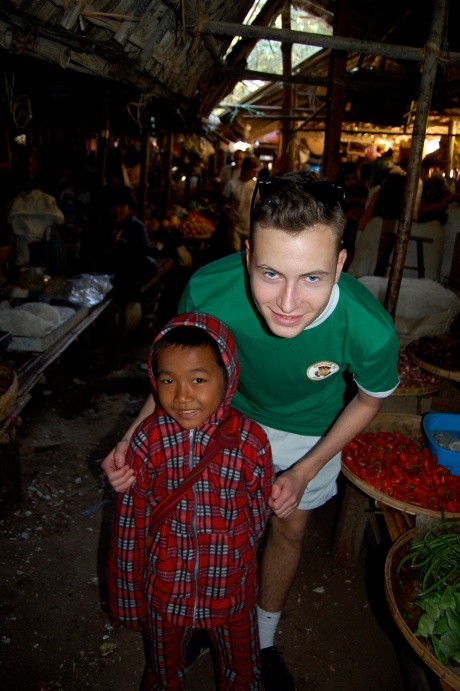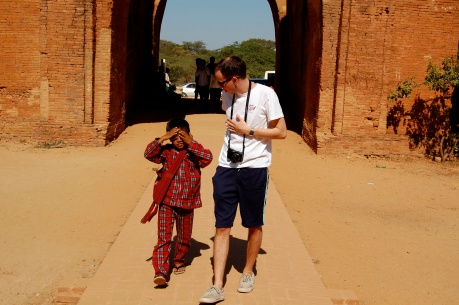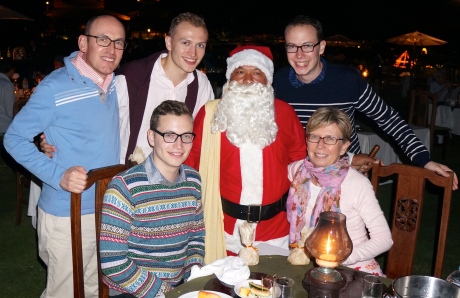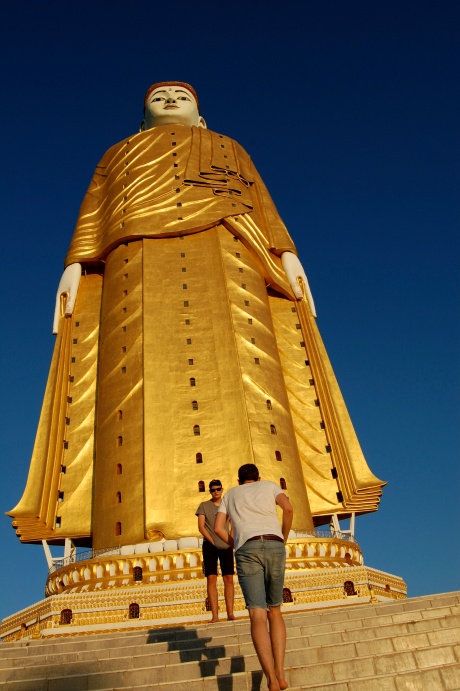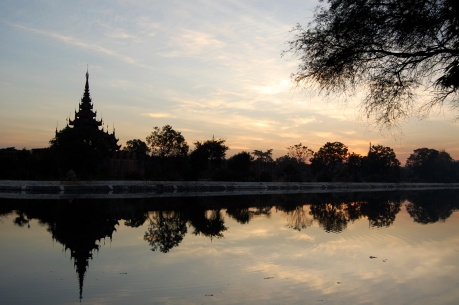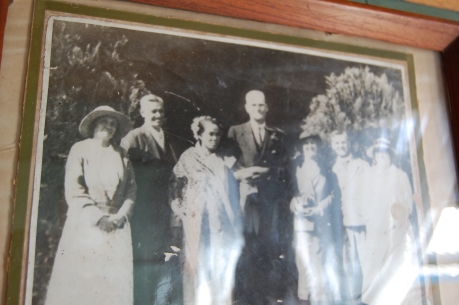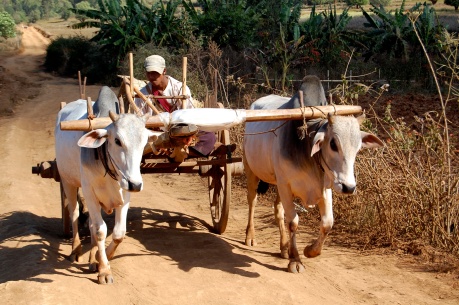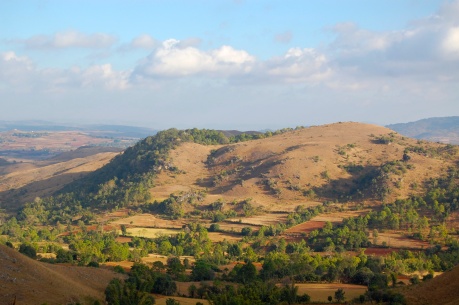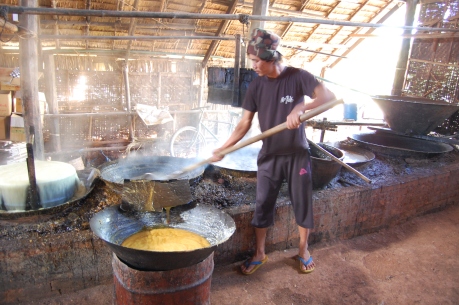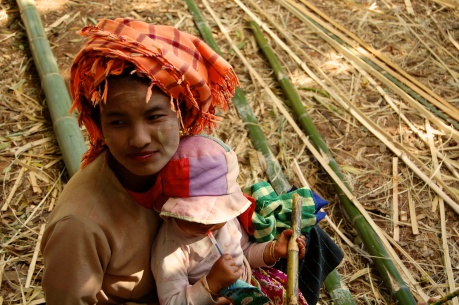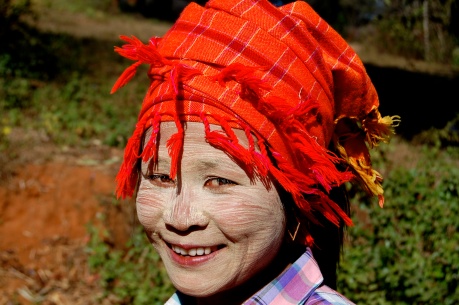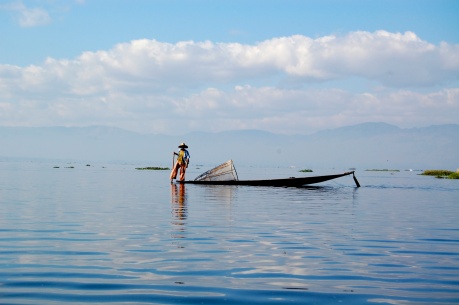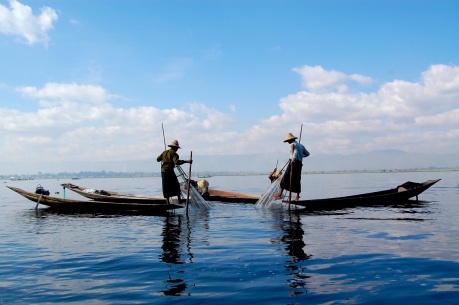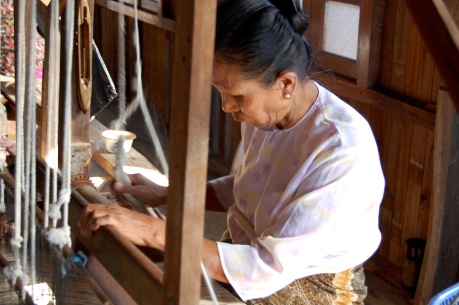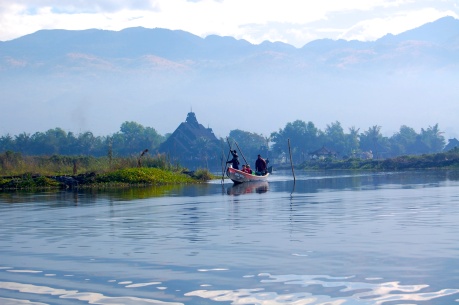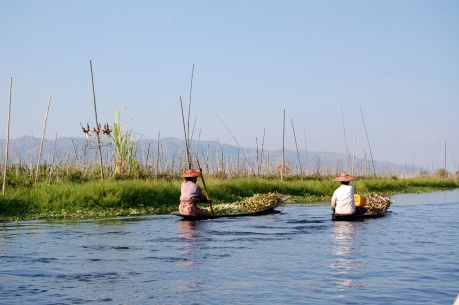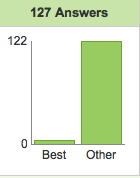It’s been a very long time. Too long, you might say. Well you’re too kind and my most sincere apologies for being so shamefully neglectful. Stupidly, I have left myself the mighty task of having to write a post to review the past several months of travel and adventure. I only have myself to blame. In fact, I had written a post about my time in Myanmar at Christmas. But then forgot to post it. It now sits idly, abandoned in Beijing on the hard disk of my laptop. As I said, I only have myself to blame.
But what use is there bemoaning my inadequacies? Like the task ahead of me, it would take far too long. Yet I suppose there is one benefit to writing this post en retarde. That is hindsight is a wonderful thing, and having been from Beijing to Myanmar, Myanmar back to Beijing, Beijing to Harbin, Harbin to Vietnam and to where I sit now, stretched out on a sun bed on a beach in Nha Trang, I’ll try to brush over the boring bits and just include the absolute essentials; the strange and wonderful people I met; the highlights of the highlights.
That lends this post an added pressure, for if this proves to be the least stimulating, mundane post yet, and these are THE highlights, you might conclude that I’m remarkably boring. What a fantastic opportunity to prove you all wrong.
The story begins in December. It was a freezing cold day in Beijing. It felt so ‘un-Christmas-y’ that I felt the need to download the Christmas Classics album from iTunes. £9.99 down and I still felt no less Scrooge-like. We’d manage to find a single strand of tinsel at the local supermarket, which we considered stealing until we found out it was actually on sale at 2p a strand. We hung it up in the living room where it drooped depressingly over a portrait of Chairman Mao that reads “We are not only good at destroying the old world, we are also good at establishing a new one”. My first, and hopefully last, Communist Christmas.
Yet, it was no time for moping as I would be getting on a plane that evening, on 17th December, to fly to Myanmar. Myanmar, Burma for the colonialists among you, was where I would be spending Christmas and New Year.
Myanmar is often overlooked by travellers in South-East Asia. Which is a good thing as it means that it hasn’t been ruined…yet. Its nestled in the far corner of SE Asia, south of the Chinese province of Yunnan and it remains a largely unexplored territory. Government restrictions and ongoing civil wars between different states, most notably the Shan and Kachin, stop the most adventurous travellers. I met a Parisienne who was attempting to go to Rakine State to photograph the ongoing conflict between the local Buddhists and the Rohingyas, Muslim refugees from Bangladesh. His only option was a 7-day trip by boat, and even if he did make it, he had been warned that army roadblocks were turning people away.
While passing through this beautiful country, it was easy to forget that it was at civil war.
Myanmar’s government, or more accurately the Tatmadaw (The Army), is more corrupt than the Chinese (according to the Corruption Perception Index) and its leaders have inflicted countless atrocities and tragedies on its people over the years. When I landed in Yangon, the commercial and intellectual capital of Myanmar, and also the home of The Lady, Aung Sung Suu Kyi, I knew little of its history. Discovering its past was hard-hitting and it truly is one of modern history’s saddest tales.
While there, I read a book called “Under the Dragon: A Journey through Burma” by a Canadian travel writer called Rory MacLean. It’s a disturbing, but beautiful story about Myanmar’s history and people, which I recommend you read whether you’re planning on going to Myanmar or not.
As the plane touched down in Yangon, I was awash with a feeling of adventure and relief. My toes and feet thawed (The Relief) and I was somewhere new, exciting, and unknown (The Adventure). I had forgotten that a world existed beyond the cold and pollution of Beijing. I could finally breathe again. And wear shorts again. (Not as important as the former, but still great). The blast of heat that hit me when I stepped off the plane felt like quenching a glass of ice cold water on a hot day. It was immediately obvious that I was no longer surrounded by Chinese, but smiling Burmese families waiting patiently for their baggage. The sun’s warmth brought a smile to my face. After 5 months in China, I’d finally escaped.
It felt very good, indeed.
After passing through immigration, I exchanged my brand new US dollar notes for the local currency Kyat (pronounced ‘chat’). On the World Wide Web, I’d discovered that bent or scuffed notes would not be accepted, which had sent me on a wild goose chase through Beijing for brand new US dollars. As you might imagine, it was not so easy. I eventually found some that looked pretty new, but fear that my $100 notes would be deemed ‘not crisp enough’ led me to build my own homemade press, with large water canisters and a big book. I considered buying an iron, but decided ironing US dollars was excessive, perhaps even psychotic. Sat on the plane I was careful not to squash them and when I finally handed them over the counter, hand shaking, I was very glad. The man behind the counter shoved two thick wads of scuffed green notes back over the counter, roughly 8 inches thick. Each. I felt remarkably gangster.
The sight of me attempting to stuff the stack of notes in my small leather wallet, however, must have looked far more Al-istair Darling than Al Capone.
I hopped into a taxi and hurtled through the streets of Yangon. Looking out of the window, the streets were a blur of magnificent colour. Bright pinks and yellows, worn-out green and magenta. Life in grey, ugly Beijing had numbed my senses. My taxi driver spoke to me in broken English, teaching me a few basic words of Myanmar and pointing out the city’s main sights. His warmth took me by surprise. Accustomed to the way Beijing taxi drivers grunt and grumble in response to my questions, this man was more than happy to entertain my curiosity. Without realising it at the time, I had had my first encounter with the kind, warm spirit of the Burmese people.
On my first day in Yangon, as I was wandering through one of the city’s many markets, a man sitting on a stool spat out a mouthful of scarlet red liquid. Almost immediately afterwards, the man sitting next to him followed suit, yet this time spewing a thicker, darker liquid. I suddenly realised that the whole pavement was tinged a deep, dark red. The citizens of Yangon are all coughing up blood, I gasped to myself. The man reached for a plastic bag full of wrapped up leaves and put one in his mouth. He began to chew and I caught a glimpse of his blood-stained teeth, oozing. As I looked around I noticed that everyone’s teeth were a blackened crimson. ‘Vampires?’, I considered momentarily, before remembering one of the “watch out fors” in the guidebook. The country has an obsession with areca nuts wrapped in betel leaves. Across Asia these nuts are chain-chewed, however this was the first time I had encountered the habit. Chewing the nuts and betel leaves is a human carcinogen, so I decided not to try one. However, it was comforting to know that the Burmese were not vampires, just nut addicts that looked like vampires.
I spent two days exploring Yangon alone before the arrival of the rest of my family. As it happened, my brothers were blissfully unaware that I also would be joining the trip. And it wasn’t until they had sat down for their first breakfast in Yangon, when I snuck up behind them, that the truth was finally revealed. I think their faces were one of surprise, but it was hard to tell in the moment whether it was incredulity or disappointment. I still maintain it was the former.
Time in Yangon was limited. Before my family arrived, I spent an evening at the Shwedagon Pagoda, watching the sun set over its golden spire that glints from dawn to dusk over the city. I met a group of students who came to the pagoda every Friday to practice their English with tourists. For over an hour we sat and chatted on the cool, marble floor. I felt their frustration. Living in Beijing learning Chinese meant we had many things in common, particularly in the frustration department. The debt I owed to my Chinese friends, always willing to let me practice, made me determined to help them in any way I could. Were it not for the past few months in Beijing, I might not have bothered.
Next stop was Bagan. Burmese civilisation began in Bagan…obviously. The founding monarch of the Bagan Empire, King Anawratha (1015-1078), was a big fan of Theravada Buddhism, and thank God/Buddha he was, as it is the reason why Bagan is one of the world’s most majestic religious sites. Stupas, temples and monasteries dot the landscape for miles and miles, each one different in shape, size and design. Gazing through the dancing propellers of our rickety old plane, I looked down in amazement at the number of golden-brown spires shooting up through the sky. A few days later we drifted in a hot air balloon over the temple complexes just as the sun was rising on the horizon. I’m not even going to try to describe how beautiful it was, so how about a picture or two.
One afternoon in Bagan we decided to explore the temples on wheels. As we peddled out of our hotel, three little boys appeared beside us on bicycles. The smallest of them spoke impressive English and proposed he’d be our tour guide for the day. He was 7-years old, but he was the most charismatic little 7-year old I’d ever come across. We’d be recommended a few temples by our your guide the day before that were famous for their wall paintings. The boy scanned the list of temples and without hesitation said, “Ok, follow me. We go to this one first”. For about 3 hours under the heat of the sun we cycled along dirt tracks and cobbled roads, temples appearing out of nowhere. It was impossible to go one hundred metres without bumping into another temple. Our tour guide, despite being the youngest, bossed and pushed the other two boys around, at one point getting angry at them for teaching us a few rude words in Burmese. He took his job very seriously and wasted no time. At one temple there were no candles or natural light so we strained our eyes to make out the art sprawling the temples’ inner walls. However, on cue, the young boy pulled out a battered old torch from his satchel and shined it on the murals. He’d thought of everything. After dropping us off at a local Burmese restaurant for lunch, we offered them a few thousand Kyat and thanked them for looking after us. As they cycled off, a couple of quid richer, I couldn’t help but think how I spent my holidays aged seven.
Christmas in Bagan was memorable. A short, plump Burmese man dressed up as Father Christmas, handing out presents to hotel guests on Christmas Eve was a sight to behold. And adorable children singing “Happy Christmas to You” to the tune of ‘Happy Birthday’ also stays in the memory.
After 3 days in Bagan, we left for Monywa. After a morning bobbing along the Irrawaddy River, the country’s largest river, sometimes referred to as “The Road to Mandalay” after Rudyard Kipling’s poem (you can read it here), we arrived in Pakkoku where we travelled by car to Monywa.
Like Orwell, who wrote Burmese Days, Kipling was another English literary great who immortalised Burma in his writing. He was enchanted by Burma’s beauty on a stopover in Yangon while travelling back home to England from India, in particular the beauty of its women. He wrote, “When I die I will be a Burman…and I will always walk about with a pretty almond-coloured girl who shall laugh and jest too, as a young maiden ought”. I’m not sure how Kipling planned to obtain Burmese citizenship in the after-life, but put my name down. Burmese women are stunning.
That day, floating along the river, I hoped that being in Burma, inhaling its great poetic, literary air, drinking in the same smells and sounds that these two great men once did, might somehow lead to my own literary epiphany. All I’ll say is that my current project ‘2046’, based on ITV’s popular TV show ‘I’m a Celebrity Get Me Out Of Here’, is dreadfully far from complete.
From Monywa, which was relatively uneventful, we drove to Mandalay. As we were driving along the potholed road, this huge statue suddenly appeared on the hillside.
The Laykyn Setyar is the second tallest statue in the world. And the tallest standing Buddha in the world. A tremendous 116 metres. It was very impressive. So impressive that I finally thought it was time to ask our tour guide a question that had been bugging me for days. In a country where only 25% of people have electricity, 32% live in poverty, how can so much money be spent on gold plated Buddhas like this? It is, of course, something the Western mind can try to comprehend, but will always fall short. By putting money towards a good cause, one will reap benefits in this life, or the next. Everywhere we went we saw new temples being built, new golden Buddhas, new shrines, new stupas, and the poverty which these new constructions surround. Asking the question was pointless. But seeing Burmese families begging outside of brand new, golden statues did not sit right.
Mandalay felt less exciting than Yangon. Its main attraction, the Royal Palace, had an extortionate entrance fee which we refused to pay, as we knew we would be directly paying the government. Throughout Myanmar we were told by our guides to be careful where we spent our money. They made sure the money we spent went to the people, not the government. On my way back to China, I was left with around £30 worth of Kyat at the airport. Unable to change it into US dollars and certainly not willing to spend it in the government-run shops, I subtly slipped it to the men and women cleaning the toilets. So instead of going into the Palace, we rented bicycles and cycled around it.
One day in Mandalay we went on a boat trip to Mingun, a small village that is home to the world’s largest uncracked bell. Some claim to fame. However our tour guide, Thunh (pronounced Toon), had told us there was an old people’s home in the village we could visit. It was run by a local nurse, middle-aged and smiley. She spoke to us about her patients, some 60 men and women, and how difficult it was to get access to medicine. The old men and women all came from surrounding villages, with no-one to look after them and no government support. The nearest hospital wasn’t for miles. We went into one of the male dorms and an old man wearing a frayed Manchester United beanie sidled up to us. His speech was stuttered and slow, but he spoke impeccable English. He told me that he had worked in a factory during the colonial era, answering phones. ‘My passion is speaking English, I love English people’, he whispered to me. After we left the dorm, the nurse told us that her son is now studying medicine at a university in Mandalay, in the hope that one day she can have a fully-trained doctor on site to help her run the home. She said that if we know anyone going to Mingun, tell them to bring as much medicine as they can. Well, consider yourself told.
She was just another incredible lady we met along the way.
One warm evening we went to see the Moustache Brothers. The Moustache Brothers are a trio of brothers who perform a comedy show mocking the Burmese government. Their jokes have got them in a lot of trouble with the government, and two of the brothers spent 6 years in prison. However these days they are allowed to perform their show strictly for foreigners. The night we went there were about 20 other tourists cramped into a small living room that faced the street. I’ve seen several comedy shows, however none quite like the Moustache Brothers. The show was a bizarre mix of weird Burmese dancing and silly, but poignant jokes. You can watch a little clip here which gives you the idea. The evening was all very clandestine; apparently the police sometimes raid their performances. If you are ever in Mandalay, it is certainly worth a visit, if anything to admire the bravery and defiance of three very eccentric brothers.
Next up was Kalaw. The hill station is located in the Shan state, one of the regions that has fought for independence over the years. A truce has been signed by the government and local troops, yet tensions still remain. During the colonial era, Kalaw was very popular among foreigners, due its beautiful location. Rolling hills and mountains can be seen for miles across the lush landscape. On our first day we went for lunch at a local restaurant run by nine sisters. Our waitress, I think sister no. 7, told us that her grandmother had married an Irishman. She showed us the wedding photo, hanging on the wall, of her grandmother and her rather lanky Irishman.
The sisters were very proud of their Irish blood. The food was exceptional, but to my great disappointment there was no Guinness on the drinks menu.
From Kalaw, we trekked through the beautiful Shan countryside for two days, stopping overnight at a small monastery. Our destination was the famous Inle Lake, one of Myanmar’s must-sees. As we passed through village after village, it felt as if you were in a different world. With no electricity or machinery, everything was done by hand or ox. We stopped by a hut that had steam billowing out of its thatched roof. The men inside were cooking up a gloopy syrup to make a kind of toffee. Every step of the process was done by hand, the pressing of the sugarcane, the ladling of the boiling syrup, the cutting of the solidified blocks. A single block sold for a few pence at the market, they told us. Another family we met on the way was stripping bamboo to make baskets. If you read ‘Under the Dragon’ you’ll understand why I was very excited to see baskets being made by hand. It was a proper family business, even the mother with her new-born child was helping weave the bamboo strips.
Every woman we saw whilst on the trek was wearing one of these orangey, red headscarfs. They are worn by women of the Pa-O ethnic group. The Pa’O people are of Tibetan-Burmese descent and there only 600,000 Pa’O people, the majority living in Shan State.
Late in the afternoon, we finally arrived at the mouth of Inle Lake. Life on the lake is more or less the same as it was 500 years ago, except now a few boats have motors. Men fish, women weave. Waves ripple against bamboo houses on stilts. I’m not sure I can tell you what it was that made Inle Lake so special. It is a cradle of life and activity, but so simple and tranquil. Like Bagan, one cannot put words to the beauty of Inle Lake so here are some photos.
Fisherman on the lake still use these old basket-shaped nets. They paddle using their feet, plunging the nets into the shallow waters for fish.
We spent 3 days on the lake watching life go by. It was the perfect end to the trip. Looking back, the Burmese people left the greatest impression on me. Everywhere we went we found kindness and warmth. The thought of flying back to Beijing made my heart sink. China’s capital is devoid of any Burmese spirit. As I sat in Kunming waiting for my connection to Beijing, I read a paragraph in Rory MacLean’s book that summed up my experience in Burma perfectly. Before I leave you with that paragraph, I want to say a couple of things.
Thank you for reading, I appreciate that you’ve made it this far. Secondly, apologies for making this post distinctly Daily Mail Online, but I feel the photos are necessary to tell the full story. Finally, I will be writing another post soon about my other travels, return to Beijing’s smog, and upcoming TV show, so please bear with me. Once again, thank you again for reading and here’s that paragraph:
“There is deep sadness in Burmese travel; not for the traveller himself, who can come and go as he pleases, but for the Burman who is tied by fear and penury to one place, prevented from unravelling the filaments and strands which have formed his remarkable country. Yet the sadness does not come from the native people, in spite of their bondage. They appear to be free of envy and greed, seem to be at peace with themselves, remain cheerful, modest and happy. They smile, while telling a tragic story of eviction and execution. Rather the sadness comes from the outsider, the lucky traveller who is allowed to enjoy the places that a resident cannot visit”.
A very lucky traveller, indeed.

